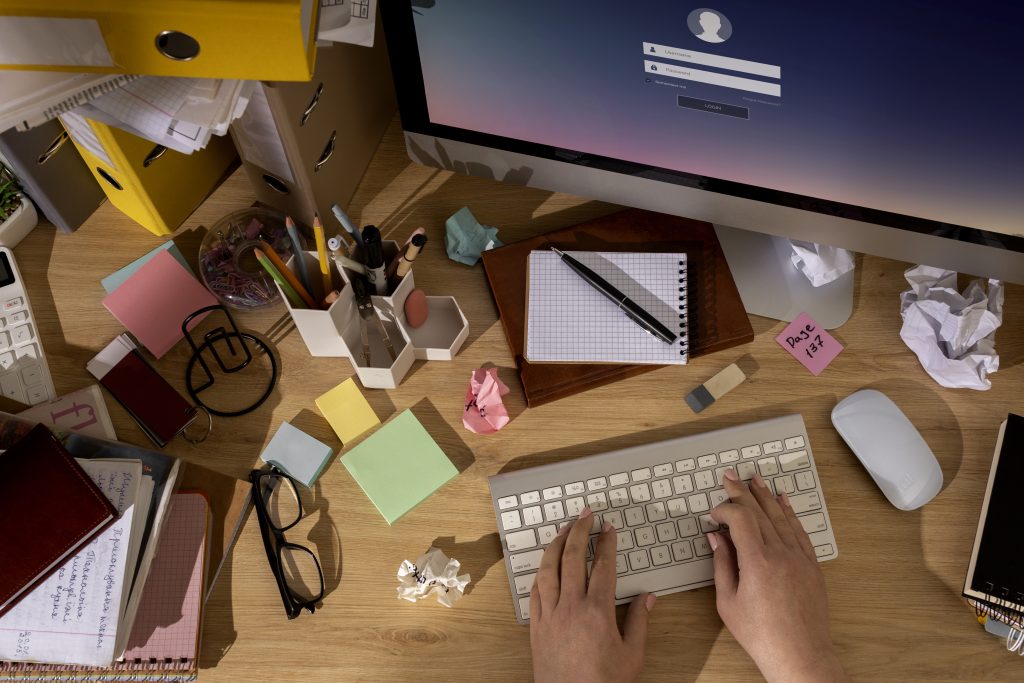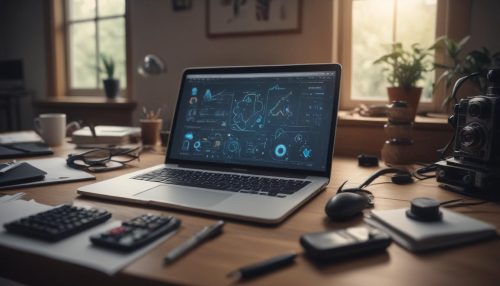The Psychology Behind Your Digital Clutter
Brian Taylor June 24, 2025
Understanding the psychology behind your digital clutter reveals why so many of us feel overwhelmed, stressed, and stuck by an inbox, unused apps, or a chaotic desktop. As digital minimalism gains traction, research uncovers powerful reasons why we accumulate digital “stuff”—and what it says about our minds, habits, and self-control.

Why Digital Clutter Happens
Emotional Attachment
Many of us cling to digital items—photos, emails, documents—due to emotional ties and worry about losing something important. This form of digital hoarding reflects anxiety and perfectionist tendencies.
Illusion of Infinite Storage
Because it’s easy to store digital files indefinitely, our brains don’t register them as clutter—until they start causing mental strain.
Fear of Missing Out (FOMO)
We often keep files or tabs “just in case,” driven by an unconscious fear of missing something crucial.
How Digital Clutter Affects the Mind
Cognitive Overload
Even digital clutter contributes to cognitive load. Excess icons, tabs, and disorganized files tax the working memory and impair focus.
Stress and Anxiety
The mental version of mess—digital disarray—triggers stress responses similar to physical clutter, raising cortisol levels and unease.
Reduced Productivity
Studies show many people lose about 45 minutes per day wrestling with digital clutter—time that could be better spent on meaningful tasks.
Why It’s Trending Now
- Digital decluttering has emerged as a recognized wellness practice, with experts linking it to improved mental health and productivity.
- The philosophy of digital minimalism—articulated by Cal Newport—is inspiring people to question and prune their digital toolkits for more intentional living.
- Recent research into digital hoarding quantifies strong links to stress, anxiety, and cognitive fatigue, especially among students and young adults.
A Guide to Reduce Digital Clutter
1. Conduct a Digital Audit
Review your inbox, desktop, photo library, and open tabs. Note what’s distracting or unused and why.
2. Apply the “One-Year Rule”
If you haven’t used an email, photo, or file in over a year, delete or archive it. This counters the “just in case” mindset.
3. Set Declutter Sessions
Schedule 10–15 minutes weekly to tidy up. Build momentum with consistent small actions.
4. Organize Intentionally
Use folders, tags, and naming systems to categorize files. Close unused tabs and uninstall neglected apps.
5. Automate Where Possible
Use filters, automatic archiving, and cleanup tools to prevent accumulation.
6. Practice Mindful Deletion
Ask yourself, “Do I need this?” Pause before saving new digital items; curating deliberately builds discipline.
Real-World Scenarios
- Students benefit from periodically cleaning folders and closing tabs to reduce cognitive fatigue.
- Remote workers who habitually archive or delete emails report improved focus and less email anxiety.
- Tech minimalists review and suspend unused apps every 30 days, preserving only the most useful tools.
The Mental Benefits of Clean Digital Space
- Clear Working Memory: Decluttering frees up mental space for complex tasks and creativity.
- Reduced Stress: A simplified digital environment helps calm the mind and lowers anxiety.
- Greater Focus: Less time spent searching equals more attention for meaningful work.
- Value-Aligned Digital Use: Intentional use of devices fosters alignment with personal goals and wellness goals.
Pitfalls to Watch
- Reverting Back Too Soon: Maintain momentum by locking declutter habits into your calendar.
- Equating Clean with Busy: Tidying doesn’t mean you’re being productive—prioritize meaningful outcomes.
- Deleting Too Much: Err on the side of archiving if unsure—it’s reversible, unlike permanent deletion.
Conclusion
Understanding the psychology behind your digital clutter offers insight into why it accumulates and how it affects you mentally. With small, intentional steps—like audits, mindful deletion, and routine cleanups—you can reclaim mental clarity, reduce stress, and align your digital life with your best self.
References
- Lifecycle Transitions. (2024). The Hidden Impact of Digital Hoarding on Mental Health. Retrieved from: https://lifecycletransitions.com
- Frontiers in Psychology. (2024). Hoarding knowledge or hoarding stress? Investigating the link between digital hoarding and cognitive failures. Retrieved from: https://www.frontiersin.org
- PMC NCBI. (2023). Digital Hoarding as Predictor of Mental Health Problems among Undergraduate Students. Retrieved from: https://www.ncbi.nlm.nih.gov





